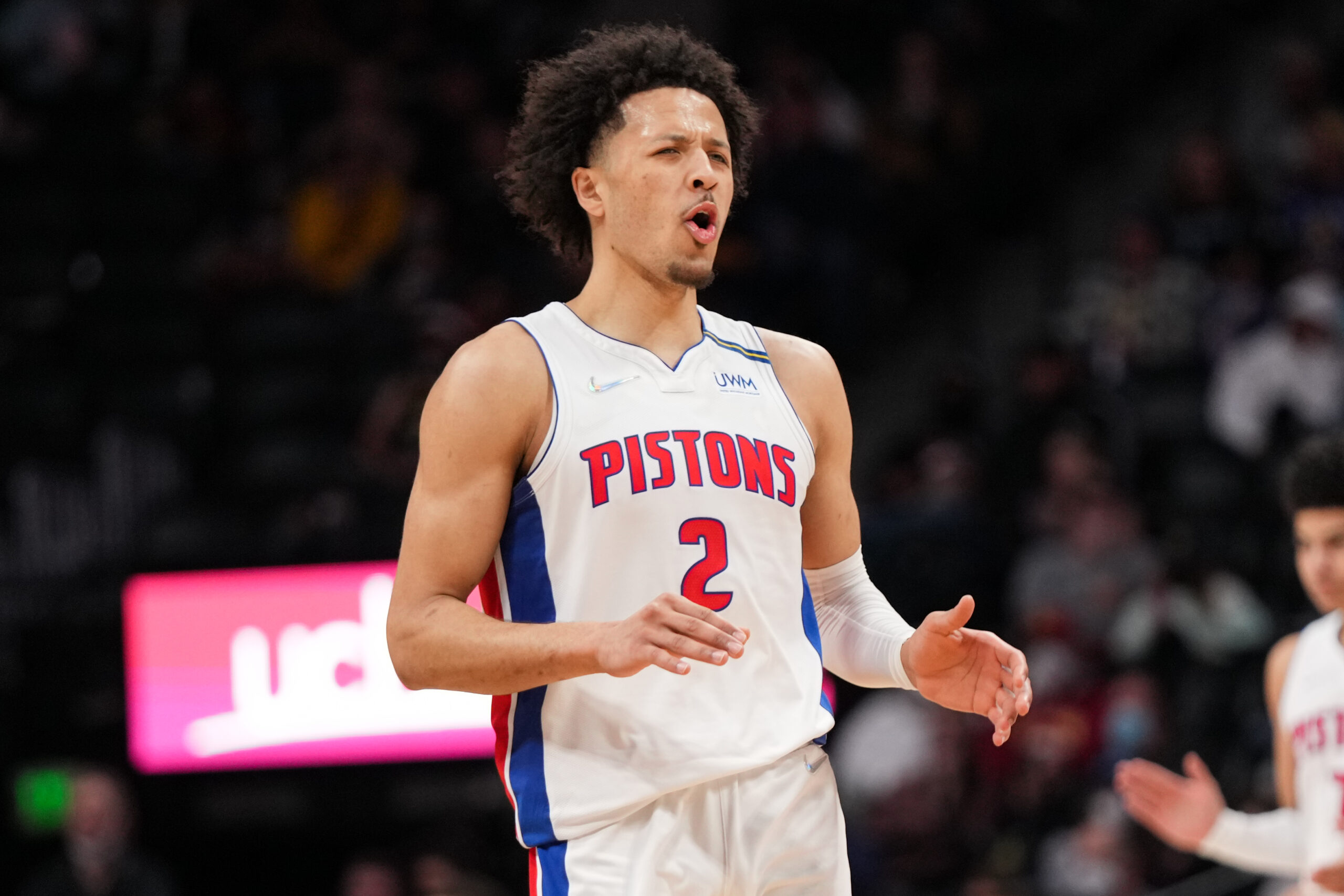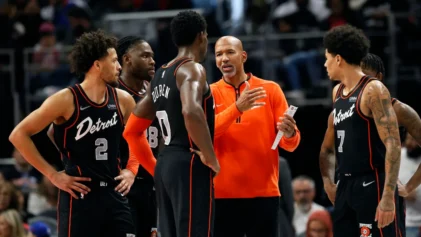On April 21st, in an under the radar move that didn’t make much noise outside of Sacramento, the Kings announced the hiring of Scott Perry as their executive vice president of basketball operations.
“I have known Scott for a long time, and he is very well respected within the league, and with players and agents,” Kings general manager Vlade Divac told the Sacramento Bee. “I contacted him previously when he was with (former Orlando Magic general manager) Rob (Hennigan), and asked if they would let him go. They said no. But when he became available, I reached out and we talked about the possibility of him joining me. This was my guy. Hes another guy who likes what we are trying to do and has similar thought on players. He is that guy, the one who can talk to anyone and knows everyone in the league and (college).”
One of the knocks on the Kings organization under Divac’s stewardship was its lack of experience in the front office. Because of their perceived deficiencies, not one lottery pick in last year’s NBA Draft opted to come to Sacramento for a workout.
That has now changed with Perry coming aboard.
With the organization looking to make moves toward improvement this offseason, there are not many executives around the league that know the NBA and college landscape better than he does. Having him in place sends a message to the rest of the league, free agents and college prospects that the previous front office insecurities and weaknesses are now a thing of the past.
Perry worked in the Detroit Pistons’ front office under Joe Dumars for six years. He started in 2001 and helped oversee a roster overhaul, including the acquisitions of Ben Wallace, Richard Hamilton, Chauncey Billups, Rasheed Wallace and the drafting of Tayshaun Prince, that would eventually produce a franchise resurgence and excitement that hadn’t been experienced since the Bad Boys era. Those shrewd moves resulted in the team winning the 2004 NBA championship.
Perry spent the 2007-2008 season as the Seattle Supersonics (prior to them morphing into the Oklahoma City Thunder) assistant general manager under Sam Presti before returning to Detroit as vice president of basketball operations. During the previous five years, he served as the Orlando Magic’s assistant general manager.
Divac had long sought Perry’s acumen, and pounced on the opportunity to hire him once Hennigan was fired by the Magic at the end of this season.
A few years ago, while still employed by the Pistons, I spoke with Perry to get a better sense of this rising star who I was convinced would one day be running his own NBA front office. Now, he’s a mere hiccup away from his ultimate goal of becoming a franchise general manager if he can assist in drastically reshaping the trajectory of the Kings.
Before ever showing an early hint of athletic promise, Perry, a Detroit native, was already affiliated with a revered Motown sports institution his own father.
Lowell Perry, a former pro football player, went on to become – among his many accomplishments – the NFLs first black assistant coach and CBS Televisions first African-American football analyst.
But Scotts standing as one of the NBAs most respected business executives was not a byproduct of inheritance. He scrapped, clawed and battled in the legendary St. Cecilias gym as one of the citys top young players. During and after his college career at the University of Oregon and Wayne State, he returned to shine in Ceciliavilles ultra-competitive college and pro-am league.
After 12 years as a Division I assistant and head coach, Perry started working as a pro scout in 2000.
He sat in his Auburn Hills, Michigan office a few years back to explain to me how a little kid from Detroit grew up to make power moves on the business side of the game.
When did you start playing at the legendary St. Cecilias gym?
Scott Perry: I went to their summer camp before ninth grade. When I was in high school, I played with and against the top guys in the area there like Roy Tarpley, Sam Vincent and The Judge, Antoine Joubert. But I grew up watching guys like George Gervin and Dave Bing in that gym when I was a kid.
What are your favorite memories of playing at The Saint?
SP: I never scored 50 or anything like that, but I had some good games. I won five championships playing with guys like Greg Kelser, Carlos Briggs and BJ Armstrong in there, three in the college division and two in the pro-am.
What lessons did you learn that still resonate today?
SP: You better come prepared to play, unless you want to get hurt or embarrassed. You had to learn how to stick your nose in there to fight and compete. If you didnt, you couldnt play at St. Cecilias.
After getting your degree, you were working in a bank and coaching high school at night. How did you make the jump to college coaching?
SP: Ricky Byrdsong got hired as the coach at the University of Detroit and some people told him that I was a young guy that he should consider for his staff. He hired me and at 24 years old, I was one of the youngest full time assistant D-I coaches in the country. I knew that if I wanted to reach my goal of working on the business side of pro sports, I needed to get in at some level.
You worked your way up to assistant coaching gigs at Cal and Michigan before becoming the head coach at Eastern Kentucky. How did you make the transition to an NBA front office?
SP: While in the college ranks, I always had my eye on working in the NBA. Id known Joe Dumars a little bit from around town when I was at Michigan. We ran into each other after he got the G.M. job with the Pistons and he told me he was going to be making some changes in the scouting department. He said hed been around the pros for so long that he needed somebody who had a handle on the college game. I was fortunate and blessed that he hired me as a scout.
How did you go from there to becoming the Vice President of Basketball Operations, basically the #2 man right below the G.M.?
SP: After my first year, I was promoted to Director of College Scouting. Then I was promoted to Director of Player Personnel, where I became involved in the free agency process as well. In 2007, I went to the Seattle Supersonics as the Assistant G.M.
What made you so successful?
SP: Being fresh out of the college game, Id tried to recruit guys that were already pros like Kevin Garnett, Tracy McGrady, Lamar Odom and Chauncey Billups. Id recruited and coached pro guys in college like Maurice Taylor and Tractor Trailor. And the guys that were still in college, Id sat in some of their homes or coached against them or seen them playing in AAU tournaments. I had a good handle on personnel which helped me bring something to the table.
How rewarding was it to be a part of the management team that brought the trophy back to Detroit?
SP: I grew up in Detroit, went to a lot of Pistons games as a kid, watched and then played against those guys in the summer at St. Cecilias. That was my team. To have a small part in helping to re-build the organization has been very rewarding.
What do you look for in scouting a college kid or free agent?
SP: He has to have talent and toughness. Hes a team guy whos driven by winning. You look for a guy who feels like he has something to prove and plays with a chip on his shoulder. Chauncey Billups is a prime example. We were his fifth team and he became Mr. Big Shot. Rip Hamilton and Ben Wallace were similar. As a scout, you have to be in tune and keenly aware of the culture and environment you have in your organization. Most people see a talented player and say, Hey, that guy can play! But that doesnt mean that he can play here.


